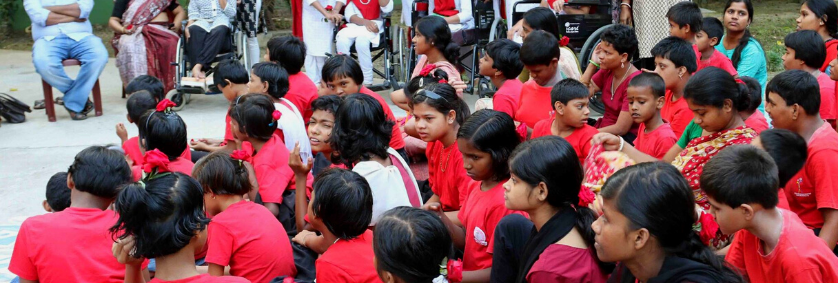Our Blog

29Jul 2022
How Do the NGO Staffs Anchor Quality and Equity for Children with Disabilities in India?
The fundamental parameter for social change as well as for sustainable rural development is education. Education is the key medium to lead to continuous transformation and finally culminate in positive social change evolving over a specific time period.
India has become the largest developing economy in its own right, but development has been indeed inequitable and skewed. The structural issues in education are ignored that have caused a class divide, and as such India's rural areas did not succeed to keep pace with their urban counterparts.
With the government realizing the youth from rural underprivileged backgrounds should be included in the mainstream, investing in education is a necessity. At the same time, the children with special abilities cannot be sidelined, they equally deserve the front row. Nevertheless, the disjointed thrust in education methods creates a gaping hole in anchoring quality and equity. The thought processes need a rethink and a radical redesign for deriving the intended benefits, and it is here that the NGO members come in to create differences.
NGOs' Role In Enforcing Equality and Quality in Rural Education
Since education for children with disabilities in India is unsustainable economically and educationally, it leads to suboptimal and inequitable schooling for the children often unable to get transitioned to higher education and drop by the wayside. So, the NGO members take a step to set up a Home for children with disabilities in distinct parts of India. As per Article 21A of the Constitution of India, the NGOs' staff ensure the students enjoy the privileges of education as their fundamental right. In conjunction with Prohibition of Discrimination (Article 15) is stated to upgrade education to acceptable standards, and the NGO staff ensure getting it done.
Guided by these laws, the NGOs are making advanced efforts to upgrade the education for children with disabilities for achieving the vision of accessibility and quality. Since the level playing field is the immediate need of the hour, so achieving this cornerstone has been possible by following and implying –
a. A policy maintaining uniformity in infrastructure and academics while establishing the teaching standards.
b. Providing education resources managed through expenditure per child
c. Establishing teaching standards with zero acceptability for multitasking and multi-grade teaching.
The way to build up an inclusive India is by inculcating the blueprints of Egalitarian education. In conjunction with primary education, higher education along with sufficient employment opportunities are working wonders for the development of children with disabilities in India.
The NGO executives are framing strategies for improving the good quality of education for children with disabilities in India. First, they identify the existing gaps and create a sustainable program to monitor the children's progress. Likewise, they implement ideas to build up their confidence levels.
SHARE THIS
0 Comment(s)
Leave a Comment
Latest Articles
-
How NGOs Help Elevate The Condition Of PWDs?
18th Mar, 2024 -
The Role Of Community-Based Rehabilitation Program......
08th Mar, 2024 -
How NGOs For Disabilities In India Champions For I......
16th Feb, 2024 -
The Role Of NGOs In Development Of Children With D......
05th Feb, 2024 -
How The Changing Rural Education System Is Shaping......
12th Jan, 2024






